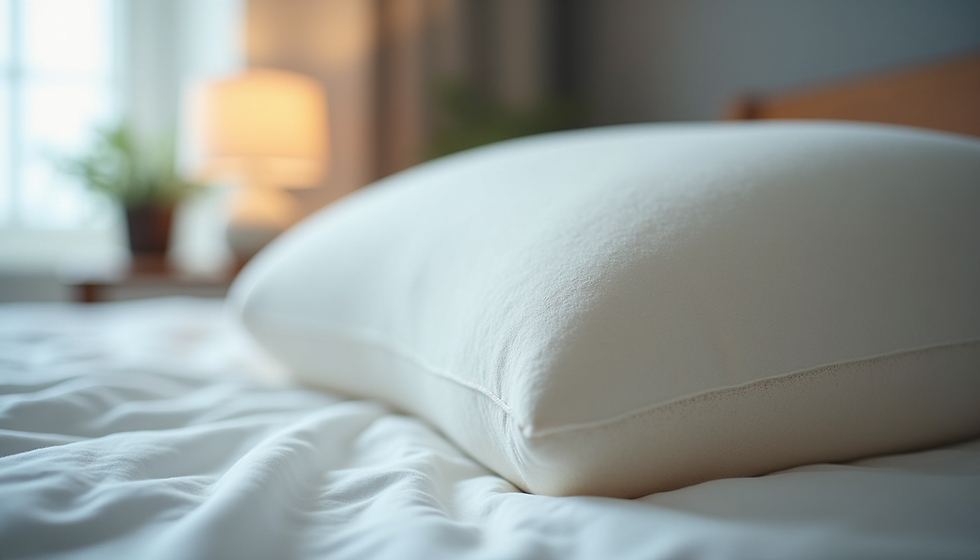Older people lifting their health with weights
- Larissa Romensky
- Dec 5, 2019
- 4 min read

There are no machines or mirrors when you enter the small gym in Castlemaine — just heavy powerlifting equipment.
For a sport that is usually associated with under-40s the average age of this class of powerlifters is 75 years old, with 10 participants over 75, and three around 80 years old.
The Castlemaine program is specifically designed for older people and includes those with double hip replacements, arthritis, and cognitive impairment.
Head coach Dean Mawby said it was never too late to exercise and described the group as people who wanted "more out of their life".
With life expectancy in Australia around 85, the prevalence of dementia has also increased — three out 10 people aged over 85 are diagnosed with dementia, with many winding up in aged care facilities.
No longer fading out
Tony's wife Ann was worried about her husband's increasing memory loss.
"My feeling is, if we'd done nothing the pathway was looking awfully like a very big fade," she said.
Nearly 80, the retired advertising consultant attends the powerlifting class twice a week for 45 minutes.
While Tony struggles to remember what he lifts, Mr Mawby said since joining the program nine months ago Tony could now lift 20-kilogram kettlebells and squats, and could bench press 30 kilograms.
"I feel more vital — it's an important part of my life," Tony said.
Referred by his doctor to get his lapsing memory tested, it was after a serious car accident a year later that it deteriorated even further.
Tony struggled to read the time and a tape measure before his weightlifting, but now he can.
"I couldn't point to this work and say 'That's why', but I think it must be related," he said.
"But my jokes have got worse."
While Ann has noticed her husband's confidence grow along with his enjoyment of the class, buoyed by the company she is also convinced his neural pathways have improved.
In the absence of any data she said the empirical evidence of improvement was there.
"I see now that feeling of Tony fading has, in my mind, gone away," Ann said.
"My subjective experience of change is valid, I think," Tony said.
Relationship between exercise and dementia
As we get older there is an accumulation of wear and tear on the brain that impacts its operation, according to neuropsychologist Jo Robertson from the Florey Institute of Neuroscience and Mental Health.
"Most people aged in their 60s and over have some degree of vascular disease in their brain that we can see on brain scans," Dr Robertson said.
"It's a build-up of many tiny strokes across years."
While there is evidence that the prevalence of dementia is increasing due to an aging population, Dr Robertson said the incidence was decreasing — most likely due to improvements in medical care, health, and lifestyle.
She said recent research identified several modifiable risk factors for dementia — including physical exercise.
"People who exercise more are less likely to have dementia, but there's not good evidence of cause and effect — we need more studies in this area," she said.
"But there is clearly an inverse relationship between exercise and risk of dementia."
Instead Dr Robertson said research had shown exercise improved the cardiovascular system, which is intricately linked with the central nervous system, brain, and spinal cord.
"Anything that improves your vascular system is going to improve your neurological health too," she said.
'We want to avoid that like the plague'
Sally Berridge only got into exercise at the age of 60 to prepare for an overseas trip, but at the start of this year took it to the next level.
"I've never lifted this much before," the 82-year-old said.
The writer and science communicator, who just finished building her new house, deadlifts 40kg, bench presses 30kg, squats 25kg, and feels much stronger when getting up.
"It was getting a bit hard to get up out of the chair and off the loo," Ms Berridge said.
Aside from the improvement in strength and balance, the gained confidence had also given her more hope for her future.
"I can have a bit more choice about what happens to me as I get older," she said.
"I have a dread of being wheeled away and put on a sofa in front of a television somewhere and someone regularly passing by with a pill trolley.
"We want to avoid that like the plague."
Becoming strong
Rheumatoid arthritis was the catalyst for 81-year-old Barbara Collins joining the powerlifting class twice a week.
It rendered her immobile for a while, but she now deadlifts 40kg, bench presses 27.5kg, squats 23kg, and lifts 32kg kettlebells.
"I am getting very strong physically and mentally," she said.
It has given her the confidence to not only navigate staircases without holding onto the rails but last week she tried out a salsa class.
"I don't know how we can become strong without doing this sort of thing," Ms Collins said.
"I can't imagine not looking after myself."
Article from ABC Central Victoria









Comments